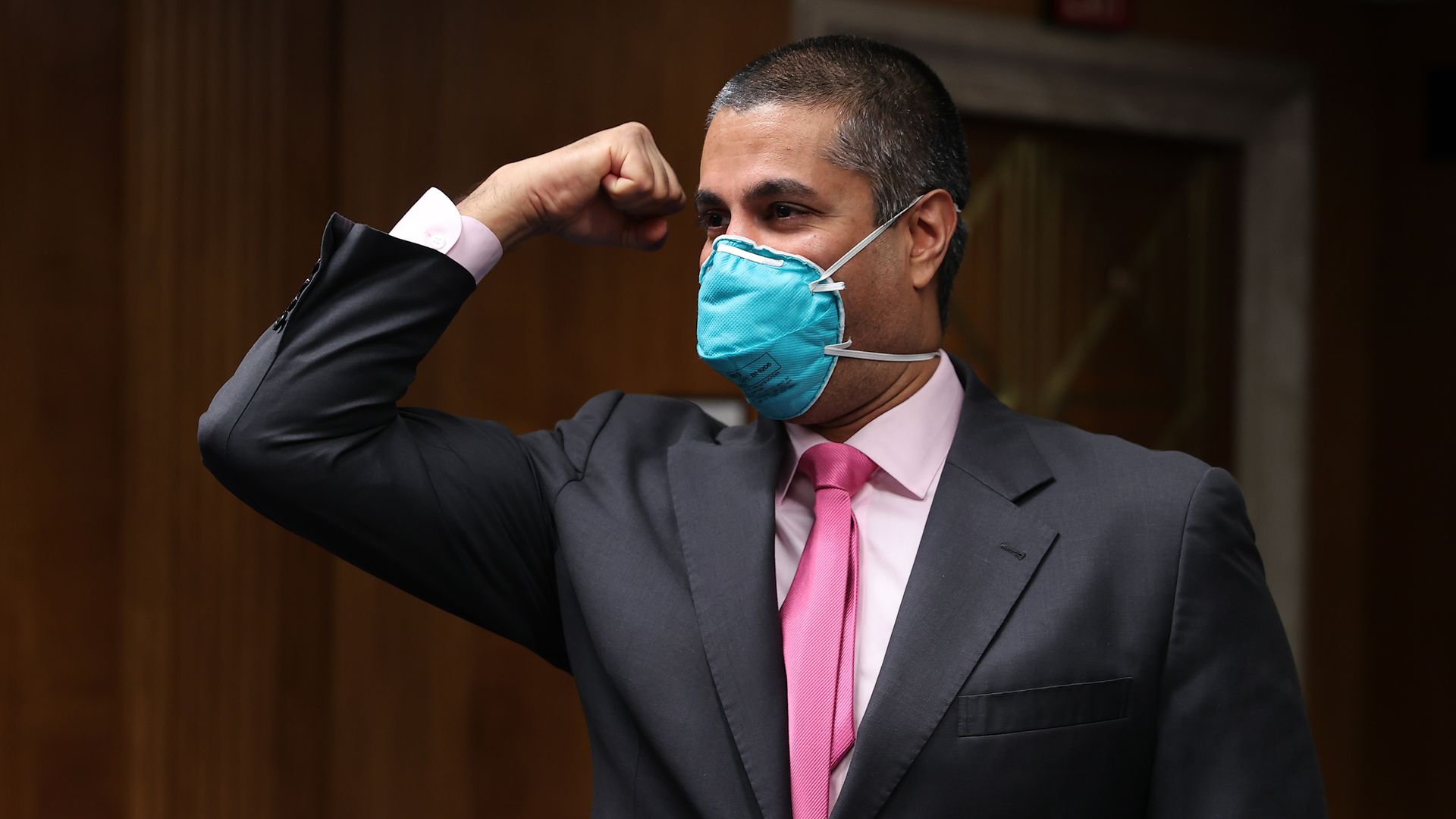The FCC is now ready to fight Section 230
Add Axios as your preferred source to
see more of our stories on Google.

FCC Chairman Ajit Pai. Photo: Chip Somodevilla/Getty Images
The Federal Communications Commission is making its case this week for why it should go ahead and write rules to curtail tech's broad protections against lawsuits over both moderation decisions and material that internet users post online.
Why it matters: The agency's GOP chairman was a longtime champion of the FCC hewing closely to the powers Congress has explicitly given it and to staying out of rewriting policy beyond its traditional jurisdiction. He now seems to have a very different view of FCC authority.
Driving the news: FCC Chairman Ajit Pai said during a virtual event Thursday that the agency is acting under a provision in the Communications Act that gives it general authority to write rules as it sees fit to enforce that act, the FCC's founding charter from 1934.
- The immunity shield, Section 230 of the Communications Decency Act, is part of the Communications Act because it entered U.S. law bundled under an expansive 1996 update to the then-62-year-old statute.
Pai's comments followed a Wednesday blog post from Tom Johnson, the FCC's general counsel, arguing that legal precedent holds that the FCC has every right to craft rules stemming from any part of the Communications Act.
- Doing so in this case, Johnson maintains, is simply a matter of clarifying ambiguous language in the law, such as a reference to online platforms being free to prohibit material they find objectionable.
Between the lines: The FCC is acting on an executive order from President Trump aimed at making it harder for Facebook and Twitter to crack down on conservatives.
Flashback: While in the GOP minority during the Obama administration and while working to unwind certain Obama-era rules after Trump took office and elevated him to chairman, Pai seemed to see the FCC's role differently.
- He told conservative radio host Hugh Hewitt in 2017 that the previous commission's net neutrality rules, which sought to regulate the telecom industry that has long fallen under FCC jurisdiction, went beyond the agency's area of expertise and were "more of a political impulse to ... solve a problem that doesn’t exist."
- "I know that this is an area of great public interest, but the right way to channel that public debate is through Congress, to let our elected officials tell us what the rules of the road in the digital world are going to be," Pai said of net neutrality then.
- "The last thing we want is an unelected group of five, or even three, bureaucrats again trying to make up the law as we go along and make determinations that ultimately are going to stand in the way of innovation and investment."
Our thought bubble: Even anodyne FCC orders often end up in court. If the agency completes the rulemaking process and delivers a final order narrowing Section 230 protections, it's guaranteed to face legal challenges.
- That looming court battle may be by design. Supreme Court Justice Clarence Thomas recently wrote that he wants the high court to hear a case that gives it the chance to rein in Section 230.
Yes, but: If Trump loses reelection next month, any project to have the FCC chip away at Section 230 — or use that attempt as a vehicle to have the Supreme Court do it — is dead in the water.
- Even if Pai starts the rulemaking process soon, there won't be enough time to finish it before Inauguration Day. Democrats including Joe Biden have expressed interest in revisiting Section 230 in the name of curbing misinformation, but they have no desire to do so through the FCC.
